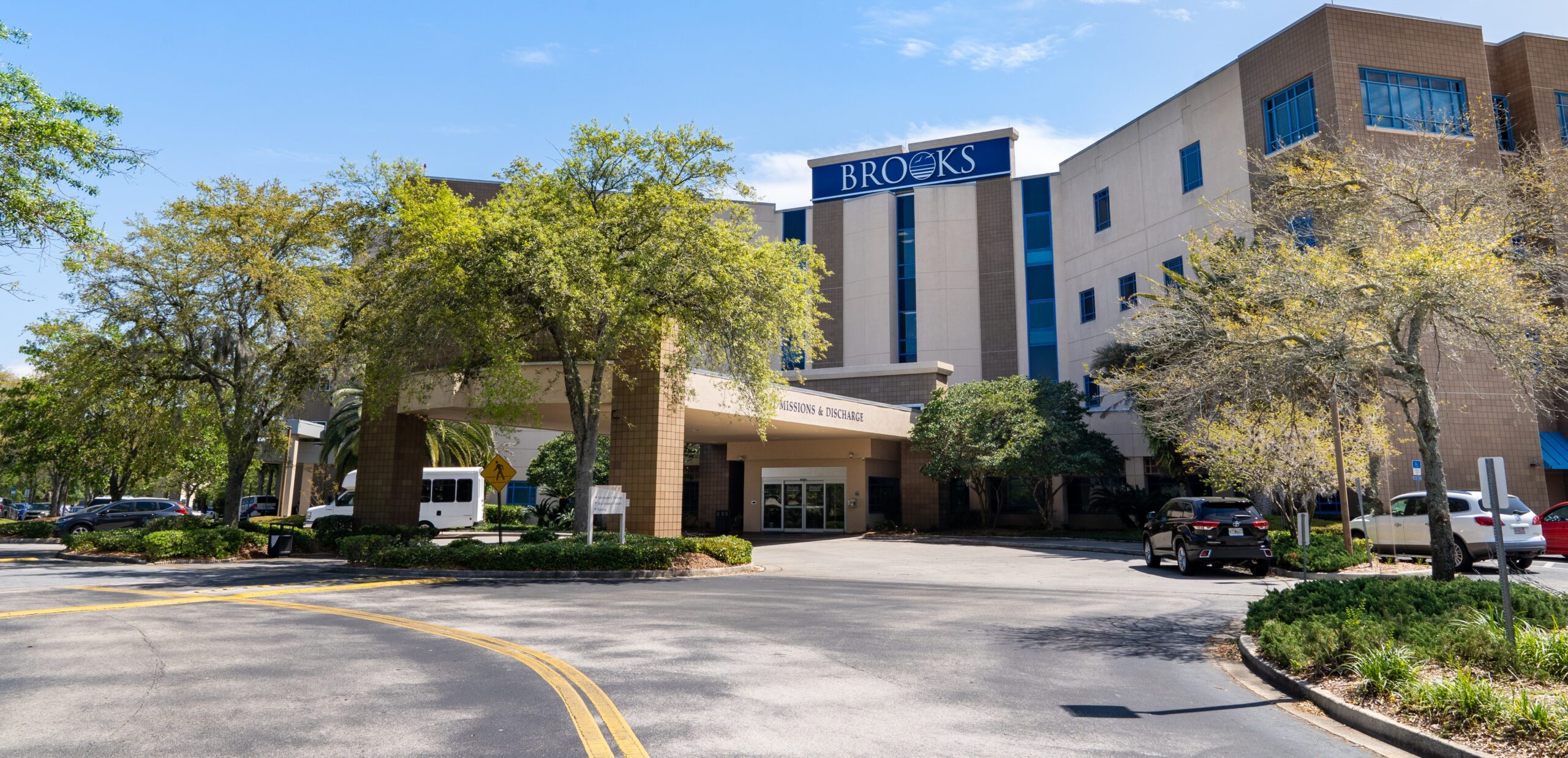Our inpatient hospital locations
We have three inpatient rehabilitation hospitals to serve patients in North and Central Florida. In fall 2026, Brooks will be launching a fourth inpatient hospital in Phoenix.
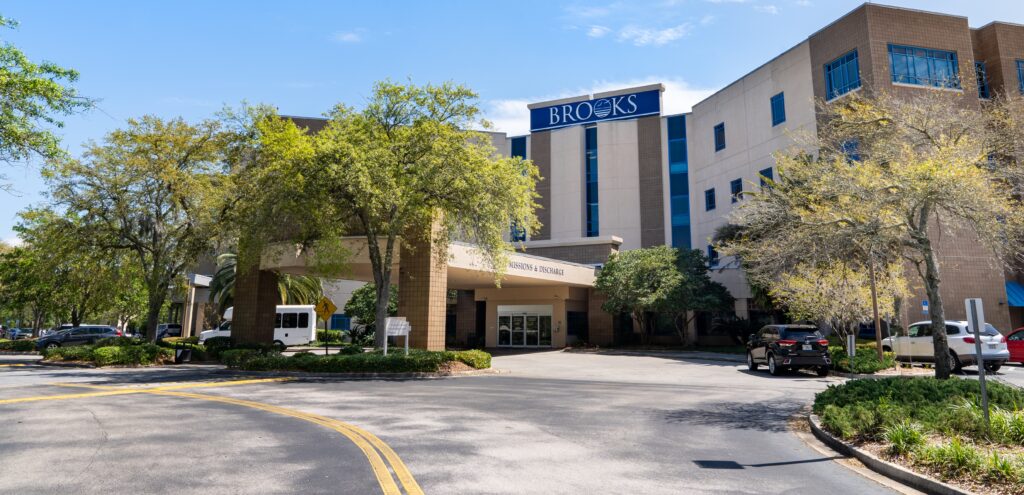
Brooks Rehabilitation Hospital - University Campus
Our 170-bed rehabilitation hospital is located in Jacksonville's San Souci community. The hospital houses state-of-the-art therapy gyms, innovative rehabilitation technology and provides 24/7 medical care along with intensive interdisciplinary rehabilitation treatment programs.
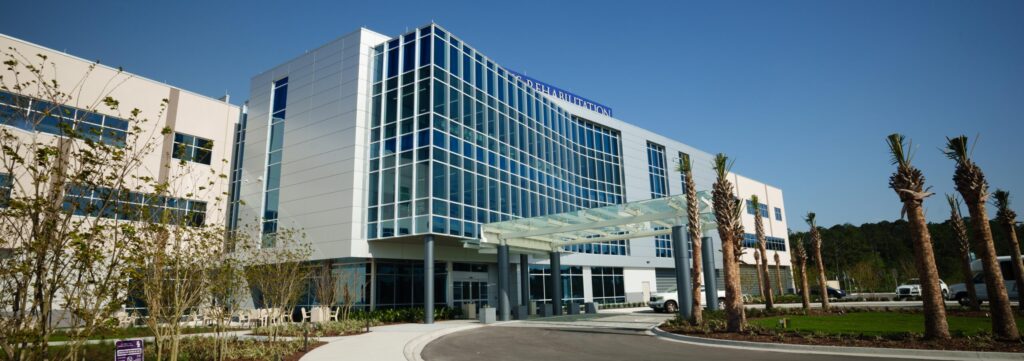
Brooks Rehabilitation Hospital - Bartram Campus
Our 60-bed inpatient rehabilitation hospital is located off I-95S in the Bartram area and provides world-class rehabilitation and 24/7 medical care for people requiring intensive therapy after a stroke, brain injury, spinal cord injury or other traumatic injuries and illnesses.
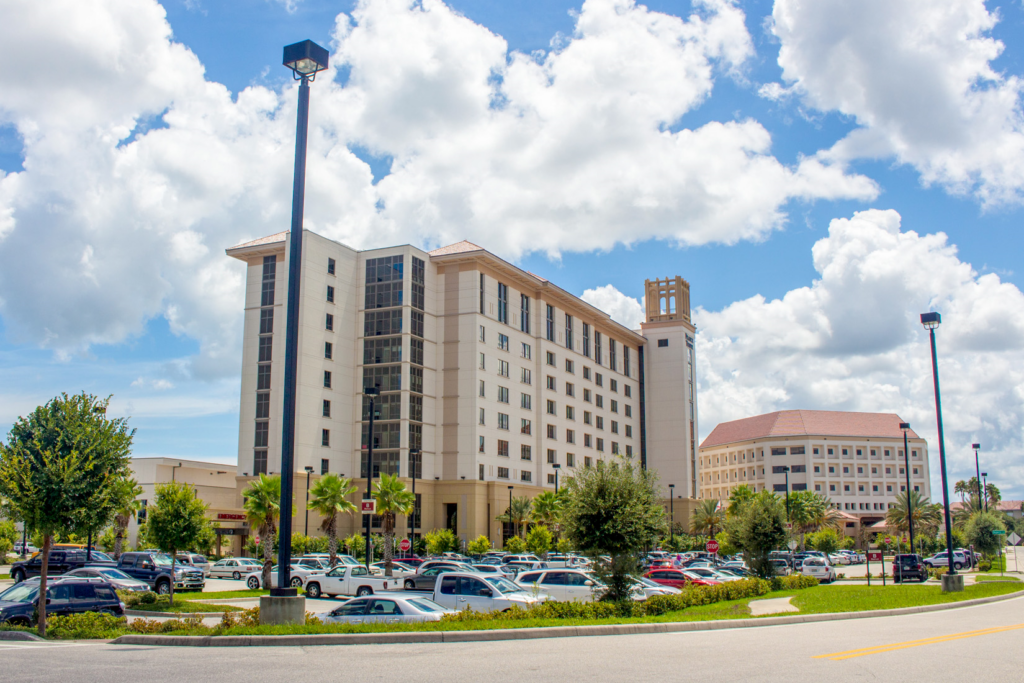
Halifax Health | Brooks Rehabilitation Center for Inpatient Rehabilitation
Located within Halifax Health – Medical Center of Daytona Beach, this 52-bed inpatient rehabilitation hospital specializes in treating stroke, spinal cord injury, brain injury and complex orthopedic conditions.
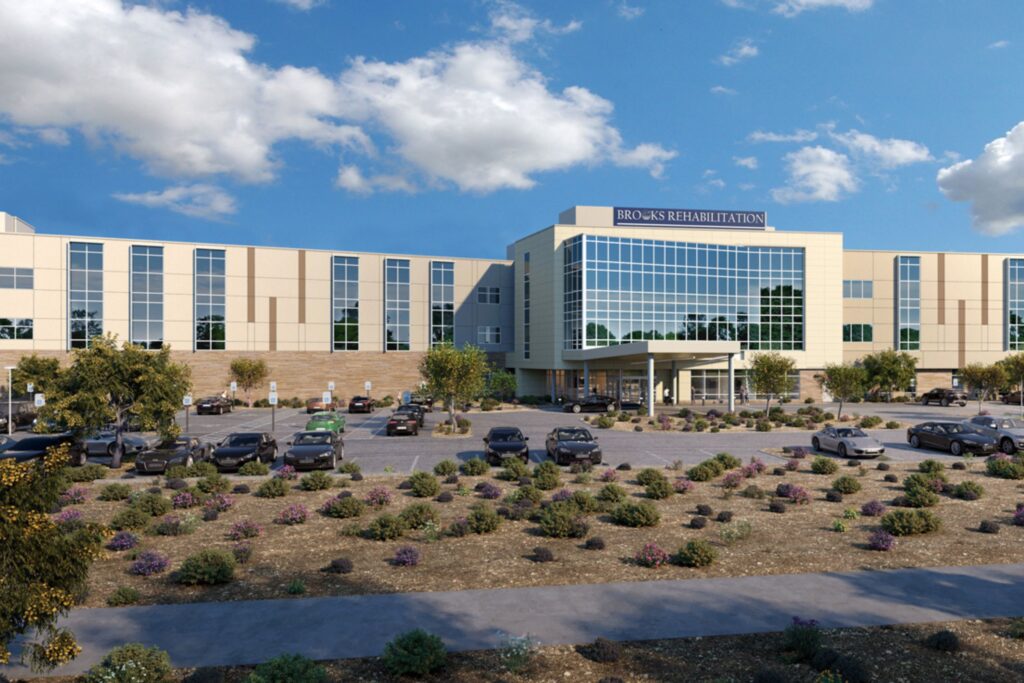
Brooks Rehabilitation Hospital - Arizona Launching Fall 2026
Our newest 60-bed inpatient rehabilitation hospital is launching fall 2026 in Phoenix on Mayo Clinic's campus.

National recognition
Brooks Rehabilitation hospitals are top-ranked in Florida by U.S. News & World Report and are the only Jacksonville-area rehabilitation hospitals to be CARF-accredited for stroke, spinal cord injury, brain injury, pain, pediatrics and general medicine rehabilitation. Our hospitals also carry the Joint-Commission accreditation for quality and safety and the Magnet designation for nursing.
Conditions and illnesses we treat
- Aphasia
- Limb Loss and Impairment
- Pulmonary Disorders
- Cardiac Dysfunction
- Neurological Disorders
- Guillain-Barré Syndrome
- Transplant Rehabilitation
Rehabilitation therapy and support services
- Aquatic therapy
- Chaplain services
- Cognitive rehabilitation
- Community re-entry programs
- Family education
- Nutrition counseling
- Occupational therapy
- Peer mentoring
- Behavioral medicine
- Neuropsychology
Medical services available
We provide a full continuum of care to support the comprehensive needs of patients and their families. At our inpatient facilities, patients have access to diagnostic imaging and lab services 24 hours a day, 7 days a week through contracted services. These providers have the ability to perform urgent or rush orders when required.
Pharmacies are available onsite at Brooks, serving patients during their stay until discharge to home. We also provide dialysis support for most patients and expert wound care.
What to expect during your stay at our rehabilitation hospitals
Comprehensive plan of care
Each patient’s plan of care begins at the moment of their arrival at our rehabilitation centers. The entire care team performs an individual assessment that leads into identifying patient’s and their family’s goals. Expect hands-on, interactive rehabilitation for the patient and their caregiver/family from the start.
Intensive daily therapy
Our goal is to create a rehabilitation environment that is working towards recovery around the clock. The type of therapy provided and intensity level varies based on each patient’s individual abilities with patients receiving up to 3 hours of therapy 5 days a week.
Weekly care team conferences
At Brooks, regular team communication is crucial for consistent patient care and maximized results. That’s why patients’ care teams come together each week to discuss progress, barriers to discharge and more.
Family/caregiver training
From day one the focus is on training and supporting patients’ families and caregivers. We know life-changing injuries affect the whole family, not just the patient. From admission to discharge, we include families and caregivers to observe, set goals and ask questions. When it’s time to go home, we want everyone to feel ready for what’s next
Activities of daily life training
To ensure a safe transition home, we offer apartment training as part of inpatient rehabilitation. On campus, patients can practice daily tasks—like getting in and out of a tub, managing the kitchen or stepping up to their front door—in a setting that simulates their home. This helps patients feel confident and prepared to return home.
Continuing care planning
Discharge day is different for every patient. A few days before release, we reassess each patient to help guide the next steps, whether that’s returning home or moving to another care setting. This also helps us recommend any needed equipment or community support.

Interdisciplinary care team
The clinicians at Brooks Rehabilitation are the heart of our practice. The expertise of our nationally certified physicians, neuropsychologists and therapists is best-in-class, but the heart they put into each patient’s case is what makes our patients feel like family.
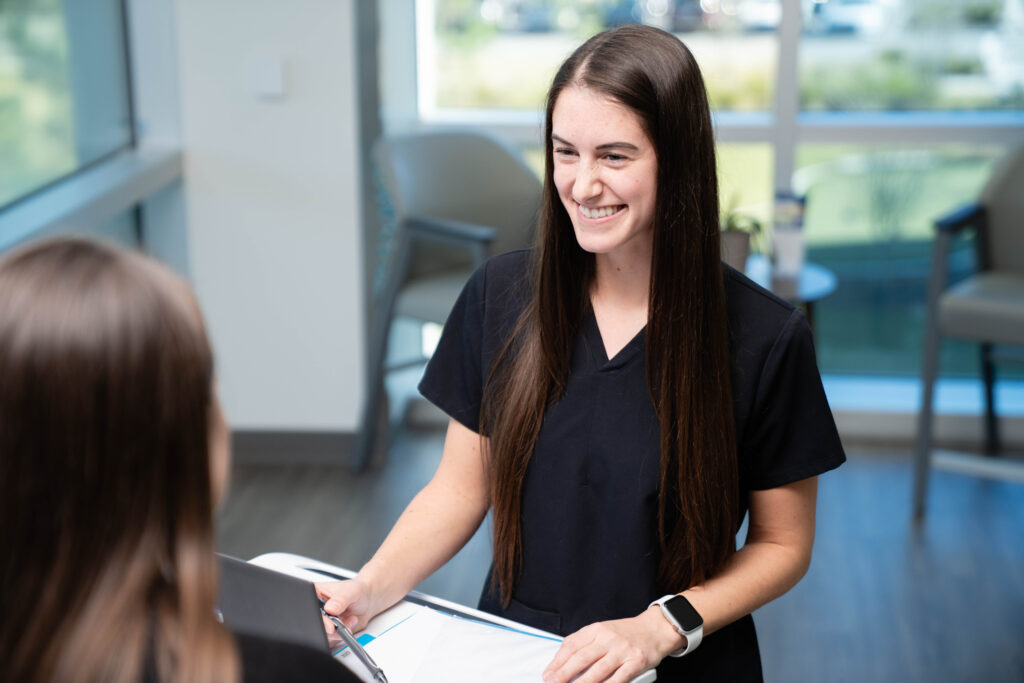
Request care
Brooks’ system of care accepts multiple types of insurance, as well as Medicare and Florida Medicaid. We also provide self-pay options when insurance no longer covers treatment.
Brooks partners with health care systems locally, statewide, nationally and internationally — accepting referrals from most acute hospitals and physicians.
Visit our price transparency page to better understand our hospital fees. These are estimates and not a guarantee of final cost after insurance.
